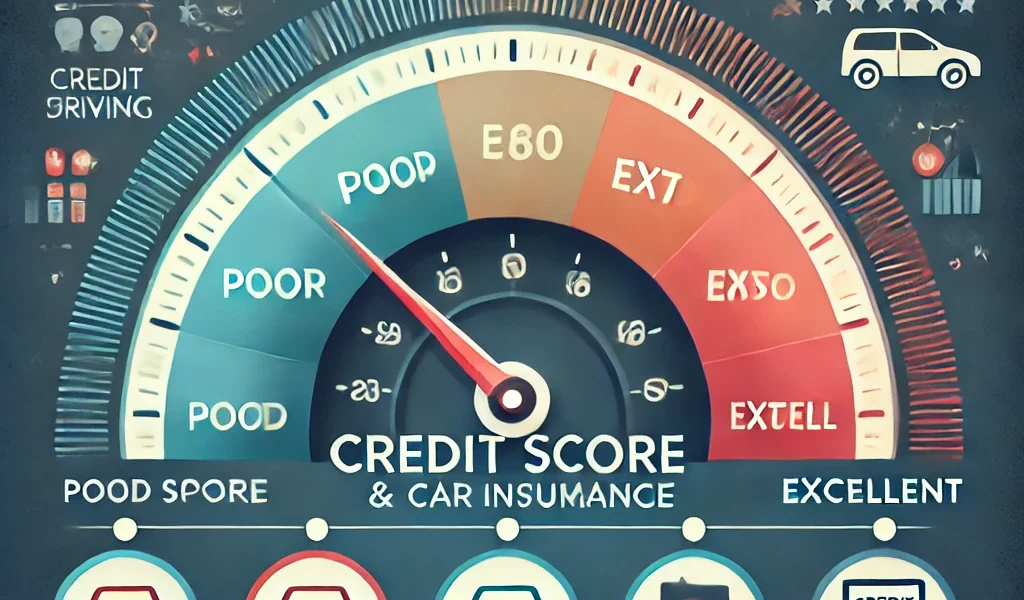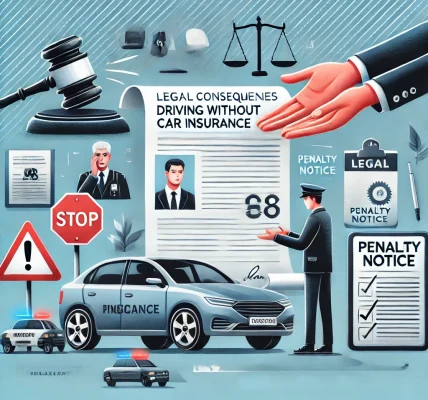Car insurance companies use various factors to determine the cost of premiums, and one of the most influential yet often overlooked factors is the policyholder’s credit score. Many insurers believe that a person’s credit history can indicate their likelihood of filing claims, which in turn affects the rates they offer. This article explores how credit scores impact car insurance premiums, why insurers use them, and how you can improve your credit score to get better rates.
Understanding the Link Between Credit Score and Car Insurance Premiums
A credit score is a numerical representation of an individual’s creditworthiness, typically ranging from 300 to 850. It is calculated based on credit history, payment behavior, outstanding debt, and other financial factors. Insurance providers use this score, among other criteria, to assess the level of risk associated with insuring a driver.
Why Do Insurers Consider Credit Scores?
Insurance companies use credit-based insurance scores (a slightly modified version of traditional credit scores) to predict potential losses. Several studies have found correlations between lower credit scores and a higher likelihood of filing insurance claims. Here’s why insurers factor in credit scores:
- Risk Assessment: Statistics suggest that individuals with lower credit scores are more likely to file claims, resulting in increased costs for insurance companies.
- Financial Responsibility Indicator: A good credit score reflects responsible financial habits, which insurers associate with responsible driving behavior.
- Fraud Prevention: Insurers use credit scores as one of many measures to detect potential fraudulent claims or financial instability.
How Credit Scores Affect Car Insurance Premiums
1. Higher Credit Score = Lower Premiums
Drivers with higher credit scores often receive lower car insurance premiums. A high credit score signals that the driver is financially responsible and less likely to default on payments or file frequent claims.
2. Lower Credit Score = Higher Premiums
If your credit score is low, insurers may view you as a high-risk driver, leading to increased premium rates. This is because historical data suggests that lower credit scores correlate with a higher probability of filing claims.
3. Regional Differences in Credit Score Usage
While most insurers in the U.S. use credit scores to calculate premiums, some states have restrictions or bans on this practice. For example:
- California, Massachusetts, and Hawaii prohibit insurers from using credit scores to determine car insurance rates.
- Other states may regulate the extent to which credit scores influence insurance premiums.
Factors That Influence Your Credit-Based Insurance Score
Your credit-based insurance score is influenced by several key financial behaviors, including:
- Payment History: Timely payments on credit cards, loans, and bills contribute positively to your score.
- Credit Utilization: Keeping credit card balances low compared to the credit limit helps maintain a good score.
- Credit History Length: A longer credit history with positive financial behavior improves creditworthiness.
- Types of Credit: A mix of credit accounts (e.g., credit cards, auto loans, mortgages) can enhance your score.
- Recent Credit Inquiries: Too many recent inquiries for new credit accounts may negatively impact your score.
How to Improve Your Credit Score for Better Insurance Rates
If you have a low credit score and are paying high insurance premiums, you can take steps to improve your score and reduce your costs over time.
1. Pay Bills on Time
Late or missed payments can significantly lower your credit score. Setting up automatic payments or reminders can help ensure timely payments.
2. Reduce Credit Card Balances
Keeping your credit utilization below 30% of your credit limit can positively impact your credit score and, in turn, your insurance rates.
3. Avoid Opening Too Many Accounts at Once
Applying for multiple credit cards or loans within a short period can lead to hard inquiries on your credit report, which may temporarily lower your score.
4. Check Your Credit Report for Errors
Mistakes on your credit report can negatively impact your score. Request a free credit report from agencies like Experian, Equifax, or TransUnion, and dispute any inaccuracies.
5. Maintain a Healthy Credit Mix
Having a combination of revolving credit (e.g., credit cards) and installment loans (e.g., car or home loans) can enhance your credit profile.
Other Ways to Lower Your Car Insurance Premiums
Even if your credit score isn’t ideal, there are other ways to reduce your car insurance costs:
- Compare Quotes from Different Insurers: Different companies weigh credit scores differently, so shopping around can help you find better rates.
- Bundle Insurance Policies: Many insurers offer discounts when you combine auto, home, or renters insurance.
- Increase Your Deductible: Opting for a higher deductible lowers your premium but means higher out-of-pocket expenses in case of a claim.
- Take Advantage of Discounts: Look for discounts for good driving history, low mileage, or defensive driving courses.
- Consider Telematics-Based Insurance: Some insurers offer policies that track driving behavior and reward safe drivers with lower rates.
Conclusion
Your credit score plays a significant role in determining your car insurance premiums. Insurers use it as a factor to assess risk, and a higher credit score typically leads to lower insurance costs. By understanding how credit scores impact your insurance and taking steps to improve your financial habits, you can secure better rates and save money. Always check with your insurer and compare quotes to ensure you’re getting the best possible deal.



